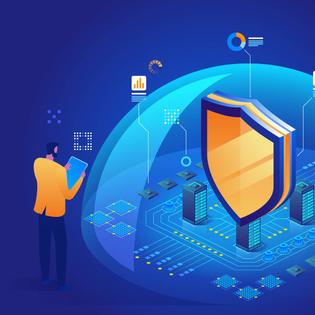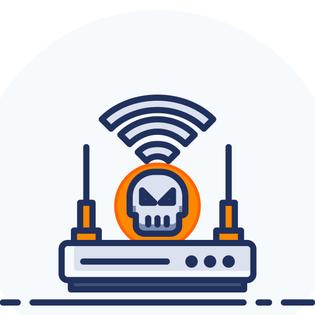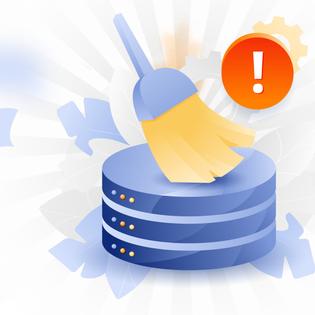Advertiser Disclosure
All About Cookies is an independent, advertising-supported website. Some of the offers that appear on this site are from third-party advertisers from which All About Cookies receives compensation. This compensation may impact how and where products appear on this site (including, for example, the order in which they appear).
All About Cookies does not include all financial or credit offers that might be available to consumers nor do we include all companies or all available products. Information is accurate as of the publishing date and has not been provided or endorsed by the advertiser.
Editorial Policy
The All About Cookies editorial team strives to provide accurate, in-depth information and reviews to help you, our reader, make online privacy decisions with confidence. Here's what you can expect from us:
- All About Cookies makes money when you click the links on our site to some of the products and offers that we mention. These partnerships do not influence our opinions or recommendations. Read more about how we make money.
- Partners are not able to review or request changes to our content except for compliance reasons.
- We aim to make sure everything on our site is up-to-date and accurate as of the publishing date, but we cannot guarantee we haven't missed something. It's your responsibility to double-check all information before making any decision. If you spot something that looks wrong, please let us know.
Malware such as viruses, worms, rootkits, key loggers, and Trojans can wreak a variety of havoc on your computer. While some malware merely slows your computer as it eats up CPU power, others may record every keystroke you enter or search for and steal sensitive information such as your bank, email, or other private account information. Ensuring that your PC is free of malware, is essential to keeping your PC running at peak performance and protecting your personal information. By following a few simple rules and tips, you can keep your PC free from malware infections and protect your identity and private data.
What are malware programs?
If you're a regular computer user, you've probably heard of it already. If you're not too familiar with malware, though, it is simply malicious software - software you do not want on your computer. The software can be classified as malware for any number of reasons. Malware may be anything from a virus that crashes your system to an Adware program that flashes unwanted ads or pop-ups on your screen. Other times, malware may be a Spyware program that transmits information about your computing and Internet practices to a remote user.
These types of programs are not new. However, malware programs, just like human viruses, continue to evolve constantly. To prevent your computer from becoming taken over by malware, you need to know how to prevent infections and how to monitor your system for its presence.
Different types of malware
As mentioned above, malware comes in several different varieties. The most common types are viruses that infect other files through propagation, spyware that transmits data to other remote users, and adware that flashes advertisements or pop-up ads in your Web browser. Rootkits are another type of malware that are particularly nasty and cause all kinds of computer problems. From the malicious deletion of important files to the covert sending of personal data, rootkits are perhaps the most dangerous form of malware that threatens computer users. Rootkits are not only able to cause significant damage, but they are also the most difficult type of malware to detect and neutralize.
What are rootkits?
Like many other forms of malware, rootkits are often found in Trojan Horses, or programs designed to appear as useful, beneficial applications that are actually containers for viruses or other types of malicious programs. Rootkits are especially dangerous, as they often give someone else administrator-level access to your computer. In many cases, rootkits are able to rewrite basic operating system commands so that outside or remote users can get into your system and essentially take over the machine. Rootkits may render certain portions of your system inoperable and inaccessible with no indication of how or why. Remote users can even use advanced rootkits to attack other computers on the network or over the Internet.
Free anti-malware programs
Over the last few years, hundreds of anti-malware and anti-virus applications have been released to help combat malicious files, and many of them are even free. Anti-malware applications such as Ad-Aware, Malwarebytes, and Spybot Search & Destroy are all freeware applications that do a reasonably good job at detecting malware and neutralizing it. While paid versions of the applications generally offer better real-time protection, the free revisions are effective as well - as long as you keep them updated with the latest DAT and pattern signature files. You can locate free anti-malware programs using your favorite search engine or on download sites such as Download.com and Tucows.com.
How to prevent malware
While anti-malware programs, such as the ones mentioned above, definitely help to prevent malware, they should not be considered all-in-one solutions. To safeguard your computer against infections effectively, you should consider installing a true anti-virus application just to be sure your PC is safe. There is a lot of malware in the world these days, and every day new variants are released. Using two applications to scan for malware and viruses increases the chances you are able to catch every malicious file that tries to sneak through.
Update your anti-malware and antivirus software regularly
Anti-malware and anti-virus programs are only as effective as their last updates. Therefore, you also need to make sure that you update your anti-malware and anti-virus software frequently (updating DAT and signature pattern files daily is recommended.)
Install operating system updates
Most of today's modern operating systems (such as Mac OS, Windows, and many versions of Linux) check for and install updates automatically. You can set your operating system to deny update requests (or opt to perform them manually,) but doing so may put your computer at risk of infection. Keeping your operating system updated protects your system from the most recent security threats. If you are running an old OS, and you are concerned about security, consider updating to a more recent release to better protect your sensitive data and files.
Surf safe and smart
One of the best malware removal tips is to avoid infections in the first place. How do you do this? By playing it safe on the Internet and following a few simple rules.
- Don't download pirated software, music, or videos. Many pirated files contain malware, spyware, viruses, and Trojans.
- Scan all email attachments before you open them. Just because you receive an attachment from a friend or relative does not mean it's safe. Your friend or relative may easily send you an infected file without knowing he/she is doing so.
- Avoid sites that deal with illicit material like pornography, drugs, or illegal activities. Many illicit or illegal sites target unwitting site visitors and download viruses and malware programs for the purposed of stealing information or infecting other computers.
Following the above rules will not ensure that you avoid malware and viruses completely. However, doing so will increase your chances of preventing a malware or virus infection greatly. Just to be sure, though, run your anti-malware and anti-virus software often (again, every day is recommended.)
Use Malwarebytes Antivirus Premium
Many forms of malware can be easily removed even after it has been on your computer for a while. However, other forms of malware, such as rootkits and Trojans, may be difficult or even possible to remove completely. Therefore, the prevention of rootkits and Trojans is essential. To prevent infections effectively, you need an application that detects new malware as soon as it attempts to infiltrate your system. A good way to start is with a free scan of your system.
Malwarebytes offers a free version of their highly acclaimed anti-malware software. Malwarebytes Anti-Malware is designed specifically to locate and neutralize both new and old threats. However, with the freeware version, you must perform scans manually and frequently to protect your system from malware and viruses. With the Premium version, on the other hand, scans and detection are automatic. Malwarebytes Anti-Malware Premium includes a real-time monitoring and scanning component that makes detecting and neutralizing much easier than with the freeware version.
Real-time monitoring and scanning are important because it is often difficult to know when you are downloading freeware or opening emails that may contain malicious files or threats. Malwarebytes Anti-Malware Premium also continually updates its virus and other malware definitions, so it can recognize new threats in addition to old ones. Start with the free version, see what malware you may already have on your system, and then consider downloading the full program to protect yourself from all threats - old and new.
-
All-in-one protection for your personal info and privacy
-
Excellent antivirus protection
-
Additional features like a file shredder and parental controls
-
Multiple pop-ups for text notifications can be annoying




